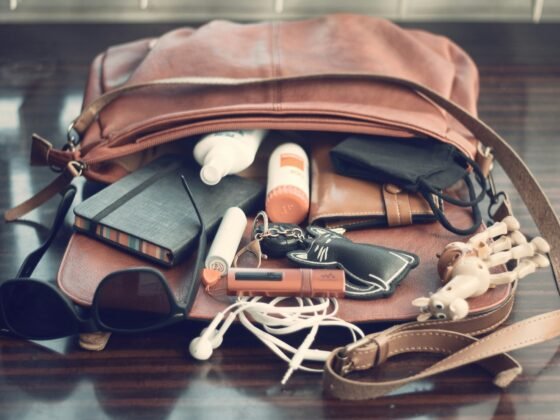If you’re an experienced traveler, chances are you’ve purchased traveler’s insurance. Most people buy insurance to cover the cost of their trip in case it gets canceled or something goes wrong. You may assume an injury from an accident would also be covered by your policy just as it could be covered under health insurance or homeowner’s insurance. The truth is, most policies do not cover personal injury.
When someone is injured on a trip, they can lose more than money. They can miss out on experiences and memories they would have cherished for a lifetime. The best way of preventing this from happening is to learn more about the most common causes of injuries while traveling so you can avoid them.
The 5 Most Common Travel Injuries
These aren’t the only ways you can be hurt or killed on vacation, but they are the most common. This article will tell you what you need to do to avoid these injuries so you can enjoy your travels without having to worry about your insurance.
1. Vehicle Accidents
Vehicle accidents are the number-one cause of travel-related accidents, especially where young travelers are concerned. On vacation, you can be injured in an accident if you are driving a car, riding a bicycle, or walking. If they drive on the opposite side of the road or the car in the country you’re visiting, it may be better not to drive.
The lawyers at pintas.com have made the following recommendations for traffic safety. You can decrease your risk of being injured if you:
Prepare a road safety kit
Make sure the vehicle’s battery, tires, and lights work and are in good condition
Make sure wiper blades are replaced if necessary
Tie a bright cloth to your antennae if you are strande
You should also familiarize yourself with the roads and driving laws in the country you’re visiting. Take advantage of any GPS programs you can use in that country, but don’t blindly follow the app. You should always double-check your route before you travel.
2. Tripping Or Falling
Despite what decades of slipping on a banana peel jokes have led us to believe, tripping and falling on vacation is no joke. Every year in the United States one-million people are injured and another 17,000 are killed in slip and fall accidents. You still face the same risk of a slip, trip, or fall when you’re in another country, and in some countries you face increased risks.
You can reduce your risk of a trip and fall injury by:
Staying hydrated
Sticking to well-lit areas
Being careful when walking on tile
Using a nightlight
Requesting a no-slip mat for your hotel bathroom
Getting enough sleep and rest
Wearing comfortable shoes with non-skid soles
3. Mugging
You can be mugged anywhere, of course, but in some countries it is more likely than others. Certain areas of Spain, Italy, France, and other popular United States citizen tourist destinations have higher numbers of muggings than average. This crime can cause physical injuries, but it can also leave you mentally traumatized. Before you go we recommend that you read another traveller’s blog post in order to find out how safe your destination truly is
You can reduce your risk of being mugged by:
Educating yourself about your destination
Drinking responsibly
Avoiding isolated areas
Hiding your cash and valuables in public
Never giving the impression you are lost, even if you are
Staying with a group
Researching any companies whose services you use
4. Dehydration
Letting yourself get dehydrated on vacation can have bigger consequences than you may realize, especially in the heat. Dehydration can cause lethargy, confusion, headache, irritability, and muscle weakness—all of which are important to avoid while you’re traveling. Any of these symptoms could lead to an increased risk of accidents or being a victim of crime.
You can reduce your risk of dehydration by:
Drinking plenty of fluids
Avoiding alcoholic and caffeinated beverages
Eating plenty of fruits and vegetables
- Seeking medical attention if you show signs of dehydration
5. Sports Injuries
Many resorts and off-shore excursions offer sports activities that can be as dangerous as they are fun and exciting. Activities like zip lines, hang gliding, snowboarding, skiing, and hiking can have life-changing consequences that can leave you injured, paralyzed, or dead in the blink of an eye.
You can reduce your risk of sports injuries by:
Making sure you have proper equipment
Being realistic about your limits
Taking lessons when necessary
Looking into the tour operator’s reviews
Looking into the shore excursion company’s reviews
Understanding Travel Insurance Exclusions
Every travel insurance policy will have standard exclusions in their coverage. These exclusions will disqualify you from being compensated for any losses, so you’ll want to check your policy to make sure you understand what the exclusions are. The following are the three most common travel insurance exclusions, though they aren’t the only possible exclusions you’ll find listed on your policy.
Pre-Existing Conditions
Insurance companies have a period that is known as a “lookback” period. This is the period in which any condition that arises can be used as the basis for a denial of your claim. This period could be as few as 60 days and as many as 180 days. If you receive treatment for any condition that is diagnosed prior to your lookback period, it may not be covered by your insurance.
High-Risk Activities
If you’re looking for sports-related adventure on your vacation, you’d better check your insurance policy first. Many specifically prohibit popular travel activities like scuba diving, bungee jumping, and white-water rafting.
Childbirth
Most insurance policies will not cover any expenses that are related to birth. You may want to think twice before you travel if there is any danger you may have a baby overseas or on the other side of your country’s border.
Medical Tourism
Medical tourism is enjoying a lot of popularity because you can get many procedures done for less if you travel outside of the United States. You’ll need to get a policy that is specifically meant for medical tourism if you want any of your damages to be covered.
Illegal Activity
If you commit a crime while you’re in another country and you are injured, don’t expect your travel insurance to cover your bills. Most policies exclude injuries that happen while you are engaged in illegal activity. This can include injuries you sustained while you were drunk or on drugs.
Don’t find out too late that your policy doesn’t cover injuries. Before you leave on a trip, check your policy and determine whether or not medical bills are covered. If they aren’t, you’ll need to purchase an additional plan that specifically covers travel accidents.












